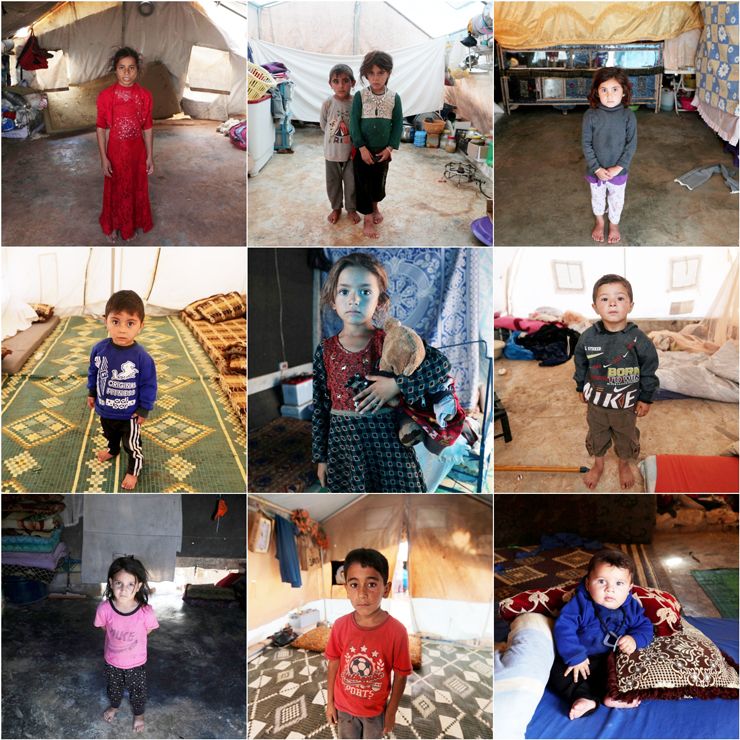After interviewing 170 children both in Syria and in refugee camps outside the war-torn country, Save the Children says Syrian chilren scared, suffer discrimination, and are afraid to go home.
The report confirms long held fears within the international aid community that a whole generation of Syrian children have been lost to the country’s civil war — killed or maimed by the fighting, displaced from their homes, unable to access education, forced to grow up before their time, and psychologically damaged by the painful experience.
The children’s charity found interviewees are severely traumatised by a number of factors – from living through the conflict, to being displaced, and now with Syria’s health system badly damaged, they have extremely limited access to the psychological help they so desperately need.
“Displaced children have lost so much over the course of the conflict – their homes, friends and families, and their childhoods. It’s unacceptable that they now view the future as a source of fear, rather than hope,” said Save the Children’s Syria Country Director Sonia Khush on June 25.
Scared to go home
For children living outside of Syria, the idea of returning is fraught with fear and anxiety. Although many are desperate to go “home,” parents report the idea is extremely stressful for their children, triggering “panic attacks, relentless feelings of fear, self-isolation, and bedwetting.”
Sari* is among the children who reported being very stressed about their future in Syria.
“I think about the army. Could I go and fight in a battle? Do I know what I am doing? You’re going to kill your cousin, a human. Why do I have to do that?”
“We suffer from extreme racism in neighbourhoods and schools,” said 12 year old Fadi* who lives in a neighboring country after his family fled Aleppo. “It’s humiliating, making me feel that death in Syria would be easier for us than to stay in this place.”
Reuters photographer Khalil Ashawi recently took portraits of nine Syrian children living in refugee camps, one for each year of the war, to mark World Refugee Day on June 20. He reported that, after living most of their lives in camp tents, the children old enough to talk did not have a clear sense of home anymore.
“These kids don’t know the meaning of a home, some don’t know or have forgotten that a house has a wall and a door,” the Syrian photographer explained.
Childhood ripped away
For older children, like 16 year old Syrian refugee Safaa* who do remember their home, childhood memories combined with her current difficult living conditions, are a source of great sadness.
“Living [here], I feel terrible,” Safaa* told Save the Children, as she began to cry, “I feel so much pain inside. We’re poor in a foreign country and I miss my country.”
Unlike Safaa, 10-year old Dara* has been able to return to her bombed out home in Syria. She now sells toys in front of her destroyed house in Syria to try and make enough money to support her family.
“I wish I could play with one of these toys, but I can’t. I sell them so we can live with that money.”
Dara, like many Syrian children, has been forced to assume an adult role and become the family breadwinner as her father is too disabled to work. Instead of playing with other children, forming important social bonds, and learning to read and write at school, Dara is shouldering a heavy burden that she does not have the psychological tools to cope with.
Save the Children encountered many similar stories throughout the interview process, and found that aside from the initial severe distress of being forced to flee the bombs and bullets that destroyed their homes, the war in Syria has impacted every part of the children’s lives.
Although clearly in need of psychological support, there is little to no chance any of the children will receive it from a health system crippled by conflict and camps that are underfunded, and overwhelmed. The OCHA estimates there is just one psychiatrist for every 250,000 people in Syria today, and psychosocial support mechanisms are also at breaking point, Save the Children says.
Save the Children are calling on the international community to prioritize child mental health services at the upcoming Brussels Conference on Supporting the Future of Syria and the Region on June 29.
“Syria’s children deserve better. As leaders gather in Brussels in the coming days, there is a real opportunity to ensure that children’s long-term mental health needs are prioritised and adequately funded. Together we can ensure that children have the help they need to feel safe and to look forward with hope,” Khush added.
On March 6, when he announced the latest round of talks, European Union Vice-President Josep Borrell said the Brussels Conference’s “immediate concern is to work towards a lasting ceasefire across the country.”
The conference will also provide an opportunity for Syrian civil society actors to engage with donors, who are prepared to pledge further humanitarian and development support to Syrian, and neighboring countries.
*names have been changed to protect children’s identities.
Read also: France Repatriates 10 Children of ISIS Fighters From Syrian Camp

